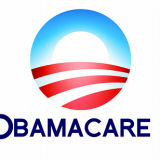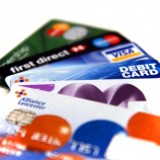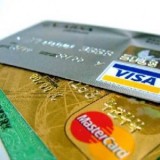Long gone are the days when credit cards were the only choice for people in need of plastic. Here are some other options
Imagine walking into a restaurant and being told that a menu is not needed because there’s only one dish being served. From time to time that happens – set price, or prix fixe, menus pop up at fancy restaurants and around holidays – but for the most part it would prompt many of us to head for the door. We all like choices.
Major financial institutions, like most restaurants, understand the need to offer different card offerings to meet the varied circumstances and tastes of their customers. As a result, many now offer three card options beyond traditional credit cards. Consumers can choose between secured credit cards, conventional debit cards and prepaid debit cards. Banks are tailoring their cards to meet the needs of different market segments, offering secured cards to young people and others eager to build good credit, issuing conventional debit cards to most checking account customers, and providing prepaid services to those who do not have bank accounts or who have other reasons for wanting prepaid cards. The choices assure almost all consumers can enjoy the safety and convenience of shopping or paying bills with bank or brand imprinted cards. Here’s a bit more about each option.
Secured Credit Cards
An inevitable part of life is to face financial stresses and setbacks. It just happens. And that has especially been the case over the past few years, as the economy has limped along and many have had to contend with lost jobs, lower wages and, often, a resulting damaged credit history. Secured credit cards are intended for people who have had some financial difficulties and thus have trouble qualifying for the sort of unsecured lines of credit typical with a standard credit card. By contrast, secured credit cards require you to pay a deposit in exchange for borrowing privileges. Think of it this way: rather than the $10,000 or $20,000 limit many credit card companies grant their customers, secured credit cards generally set your limit at whatever amount you can deposit into your account upfront. So, if you open a secured credit card account with $1,500, then you have a credit line of $1,500. Not all cards have such a strict formula for establishing credit lines, especially after you’ve proven that you reliably pay your bills. Qualifying standards are relatively lenient because that upfront deposit acts as collateral. In exchange, however, you face strict payment requirements and risk substantial penalties and interest hikes if you fail to use your card responsibly. The average secured card requires $50 in annual fees, and some charge more than 20 percent interest. The cards also typically assess late charges. The good news, however, is that prudent use of secured credit cards can help rebuild a person’s credit rating.
Conventional Debit Cards
“Free” checking is very seldom completely fee-free. When you open a conventional checking account, the majority of banks issue a debit card as part of their service. You may use a debit card to withdraw funds from your account on those occasions when you cannot write checks. You can also take advantage of online shopping and bill-paying services, which make spending and tracking your money far easier than writing out checks and combing through your register to balance your account. While conventional debit cards combine the convenience of a credit card with the security of a check, they can often come with fees. More and more banks are charging their customers monthly fees when they opt to use their debit cards for both PIN and purchases that require a signature.
Prepaid Debit Cards
Prepaid debit cards offer the same convenience as credit and conventional debit cards without the risk of overspending. That’s because prepaid debit cards require consumers to deposit, or load, money into their account upfront. And the amount of money loaded onto the card is all that you can spend. Most prepaid debit cards require no application, and they charge no monthly fees when you meet minimum monthly loading requirements. Major financial institutions offer prepaid debit cards that carry all the same consumer protections as their conventional cards, and many are now including Federal Deposit Insurance Corporation (FDIC) protection as well. Consumers, however, must compare prepaid debit cards, because many providers still charge “maintenance” and “inactivity” fees. Mitchell Weiss, co-founder of the University of Hartford’s Center for Personal Financial Responsibility, tells U.S. News & World Report, “These cards prey on the under and unbanked consumers, who mistakenly believe they’re more economical than having a traditional checking account.” In the very worst cases, consumers may lose up to 20 percent of the money they put on their cards to hidden fees.
How to Choose a Card
Because they submit regular monthly reports to the three major credit bureaus, secured credit cards help you establish, restore or improve your credit. Tied to your checking account, conventional debit cards make routine transactions more convenient. Retailers and service providers typically accept debit cards even when they do not accept personal checks, and conventional debit cards make online shopping easy. With most conventional debit cards, however, you run the risk of overdraft penalties. For many families, prepaid debit cards can be a good choice, because they offer the convenience of credit and conventional debit cards while they make sure you stay on your budget. If you want to shift your family to a “cash only” economy, prepaid debit cards can help.
No single card is the best choice for everyone. Your best choice depends on your financial situation and objectives. Many credible online sources provide tools for comparing prepaid debit cards and calculating which best satisfies your needs. And picking a card doesn’t have to be an either-or proposition; many families choose to carry and use one of each.





